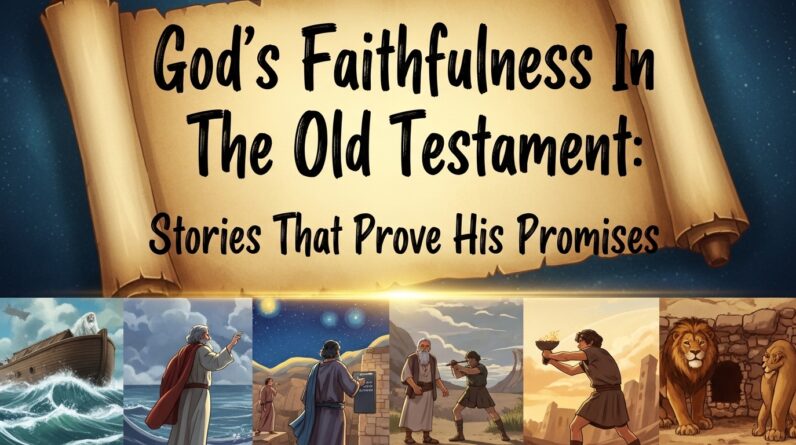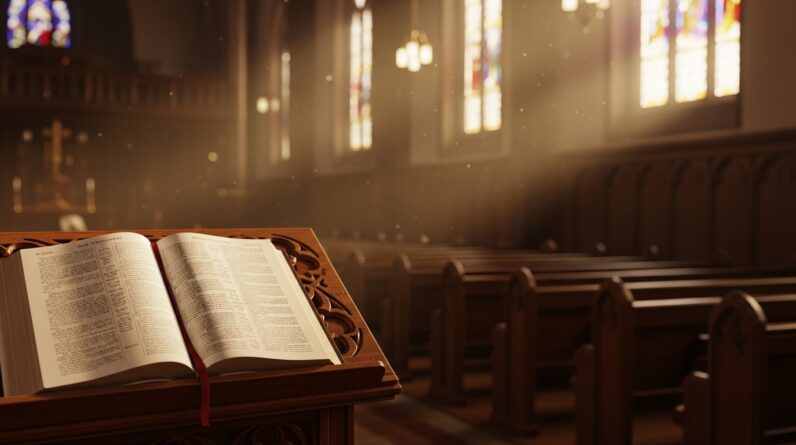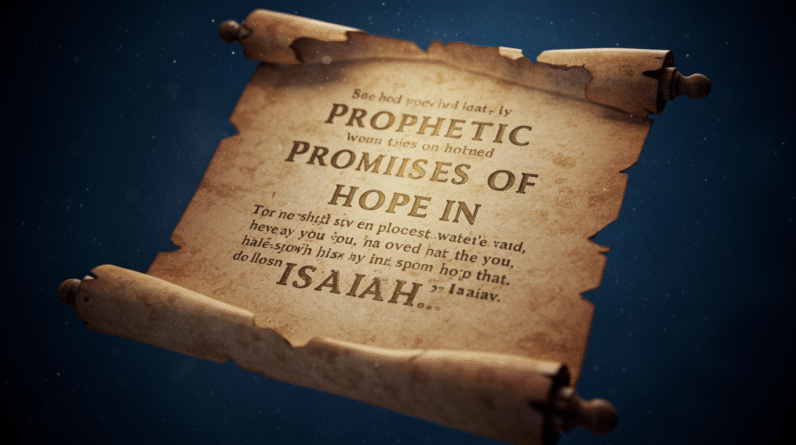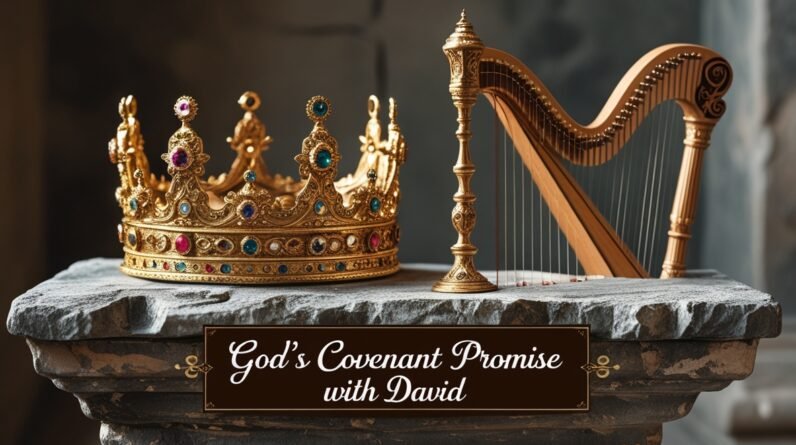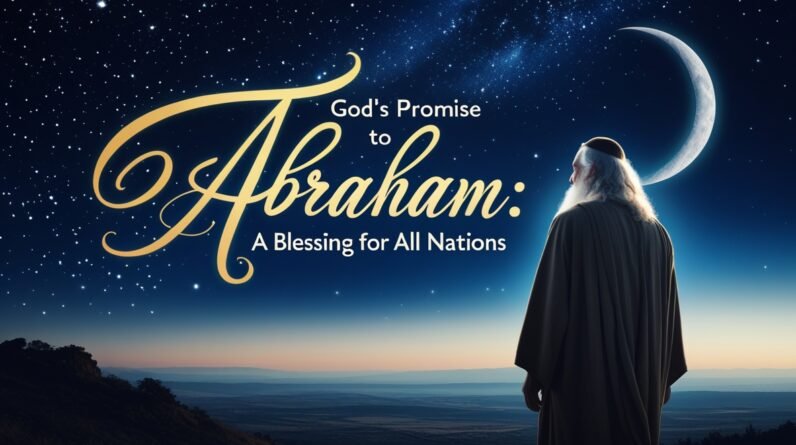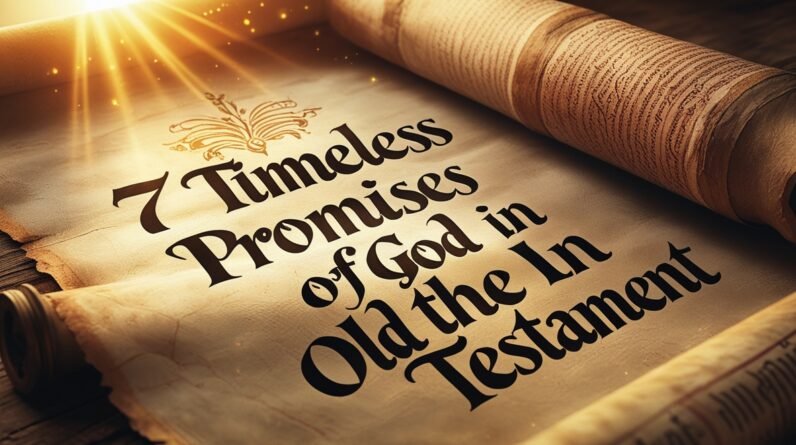The Promise Of Deliverance In Exodus
You may have turned the pages of Exodus and felt the weight of suffering and the swell of hope that runs through its story. The promise of deliverance in Exodus is not just an ancient line in a history book; it is a living word spoken into the darkness of oppression and into the very real struggles you face today. In Exodus 3:7–8, God speaks to Moses from the burning bush with words that cut right to the heart of human pain and divine compassion: He has seen, He has heard, He knows, and He will act. That pledge — the promise of deliverance in Exodus — is the hinge on which Israel’s identity swings, and it still hangs before you as a lamp of hope when life feels unbearable. You will find that the language of rescue, covenant, and transformation in Exodus tells you both who God is and how He works when people cry out to Him.
When God Sees and Hears: Setting the Scene
You first meet this promise against the backdrop of centuries in Egypt — a people born as strangers, multiplied in suffering, and crushed under forced labor. The book opens with an atmosphere of grinding oppression, and the promise of deliverance in Exodus begins as God’s response to that cry. Exodus records how the Israelites groaned because of their bondage, and how God took notice of their cries. Read for yourself the account that sets the emotional and spiritual scene: Exodus 2:23–25. You will see that the promise is rooted in compassion; God’s action comes after lament, after pleading, and after the faithful pain of those He loves.
Read Exodus 3:7–8 Closely
You ought to sit with these words slowly, letting each verb land: Exodus 3:7–8. God says, “I have indeed seen the misery of my people… I have heard them crying… I know they’re suffering… I have come down to rescue them.” The promise of deliverance in Exodus here is explicit — it is not a vague hope but a concrete intention. The language is both personal and immediate. When God speaks of seeing and hearing, He places Himself within the experience of suffering. When He says He will act, He moves from empathy to intervention. You are invited to hear that same voice in the turmoil of your life: a God who sees, listens, knows, and promises to deliver.
“I have indeed seen” — God’s Perception
When you read the phrase “I have indeed seen,” remember that your situation is never too small, too hidden, or too messy for God’s gaze. God’s seeing is not like human observation from a distance; it is intimate and attentive. In the same way He observed the Israelites’ suffering in Egypt, He sees the places in your life where you feel trapped and overlooked. The promise of deliverance in Exodus begins with perception: God notices your tears, your daily grind, and the deep exhaustion that wears you down. You are not anonymous to Him. Seeing is the first step toward action, and it is a promise that His attention is not passive but preparatory for deliverance.
“I have heard them crying” — God’s Listening
You’ve felt the weight of being unheard. The promise of deliverance in Exodus reassures you that God not only sees but heeds the cry of His people. “I have heard them crying” is a divine acknowledgment of the prayers, laments, and even silent groanings that rise from the heart. God’s hearing means your petitions matter; He is alert to the sound of suffering and moved by it. When you bring your pain before Him, you are joining a chorus that has always elicited God’s response — a promise that grieving voices are not ignored and that hearing precedes rescue.
“I know their suffering” — God’s Understanding
When God says “I know,” it’s a different word entirely from merely seeing or hearing. Knowledge here is empathetic and relational. The promise of deliverance in Exodus tells you that God knows the contours of bondage: the daily humiliations, the stolen dreams, the spiritual oppression that chips away at hope. You are not dealing with an abstract deity but with One who comprehends the texture of your pain. This knowing carries assurance: because God understands the depth of your plight, His deliverance will be fit for your need, compassionate and wise.
“I have come down” — God’s Initiative
God’s phrase “I have come down” breaks through any notion that He is aloof. The promise of deliverance in Exodus is an expression of divine initiative. God does not wait to be provoked into action; He descends — He steps into history and into human suffering. You see in this the pattern of redemption: God entering into the midst of your trouble, not to pass judgment from afar but to intervene with power and presence. The same willingness to come down that you see in Exodus foreshadows the ultimate descent in the person of Jesus Christ, who came to deliver you from the slavery of sin and despair.
“I will rescue them” — The Promise Declared
At the heart of Exodus 3:7–8 is the active promise: “I will rescue them.” The promise of deliverance in Exodus is not theological wishful thinking; it is a decisive divine commitment. Rescue implies movement from bondage to freedom, from scarcity to abundance, from degradation to dignity. God’s deliverance is comprehensive — it will liberate the people and lead them to a land flowing with milk and honey. This promise shapes the identity and hope of Israel, and it offers you a blueprint for faith: when God promises deliverance, He intends to keep His word.

The Deliverance Envisioned: From Slavery to Nationhood
When God promises deliverance, He is promising more than escape. Read Exodus 6:6–8 and you will see that deliverance in Exodus includes redemption, liberation, and the formation of a people. God’s rescue is designed to restore dignity, to provide security, and to establish a community bound to Him. For you, that means the promise of deliverance in Exodus should be read both personally and communally: God’s rescue often redefines you as part of something bigger — a family, a mission, a new future — not merely as an isolated survivor of hardship.
The Promise Of Deliverance In Exodus and Its Fulfillment: Signs, Plagues, and the Exodus
When you trace the promise forward, you find that God fulfills His word through a series of dramatic acts: the plagues, the Passover, the flight from Egypt, and the crossing of the sea. Each step is an affirmation that God’s promise of deliverance in Exodus is reliable and powerful. Read the climactic moments that follow the burning bush encounter: the night of release in Exodus 12:31–42 and the miraculous crossing in Exodus 14:21–31. These events show you that deliverance can be sudden, supernatural, and sanctifying. God’s ways are often beyond human expectation, but His faithfulness is never beyond His promise.
The Cost and Path of Deliverance: Trials in the Wilderness
Once you’re out of Egypt, your journey is not instantly comfortable. The wilderness stage — the testing, the complaining, the dependence — is part of how God shapes His people. The promise of deliverance in Exodus didn’t mean a trouble-free existence; rather, it meant a purposeful walk to a new identity. You see this in the narratives of hunger and thirst, in the giving of manna, and in the shaping of law. The wilderness tests your reliance on God and reveals the depth of your trust. It’s a reminder that deliverance often includes purification, formation, and learning to live by faith.
Covenant and Identity: How Deliverance Shapes God’s People
Deliverance in Exodus culminates in the giving of the Law and the forming of covenant identity at Sinai. Read Exodus 19:4–6 and you’ll see the transformation: from a band of slaves to a holy nation and a royal priesthood. The promise of deliverance in Exodus is not only about being free from something but being freed for something — worship, witness, and service under God’s rule. In your life, deliverance should lead you into a renewed purpose: God rescues to make you a channel of His blessing to others.
The Theology of Deliverance: Compassion, Power, and Faithfulness
When you consider the promise of deliverance in Exodus, you’re confronting three abiding truths about God. First, God’s compassion moves Him toward action. Second, His power brings the impossible into reality. Third, His faithfulness ensures His promises are kept across generations. You can see these themes echoed in places like Psalm 136:10–12 and in prophetic assurances like Isaiah 43:1–3. These passages join the promise of deliverance in Exodus to a broader biblical narrative: God is a rescuer who works through history toward restoration.
The Deliverer Typified: Moses and the Promise
Moses stands as the human instrument of God’s promise in Exodus. He is hesitant, fragile, and yet used mightily. When God calls Moses, He reveals a pattern you can rely on: deliverance often comes through flawed people who trust God’s presence more than their own competence. Read Moses’ commissioning in Exodus 3:10 and his continued dependence on God through the plagues and confrontations with Pharaoh. The promise of deliverance in Exodus is fulfilled through human obedience aligned with divine authority — a model that encourages you to answer God’s call even if you doubt your own ability.
The Promise Of Deliverance In Exodus and the Passover: A Sign for Generations
The institution of the Passover is the tangible sign of God’s rescue. When you read Exodus 12:1–14, you discover that God instructs the people to mark their doorposts so that death would pass over them. The promise of deliverance in Exodus thus becomes ritualized memory — a way to ensure that the story of rescue is told across generations. For you, the Passover model encourages the formation of spiritual practices that remind you, and your children, of God’s faithfulness in moments of crisis and renewal.
The Promise Fulfilled Ultimately in Christ
You should not think of the promise of deliverance in Exodus as sealed within the Old Testament; it points forward to the ultimate deliverance found in Jesus Christ. In the New Testament, redemption language from Exodus is reapplied to the spiritual rescue Jesus accomplishes. Consider how Jesus quotes Isaiah and proclaims good news in Luke 4:18–19, or how John speaks of the freedom Jesus brings in John 8:36. The Exodus promise is fulfilled when you experience liberation from sin, guilt, and eternal separation from God. The freedom offered at the Red Sea becomes a picture of the spiritual crossing from death to life through Christ.
How the Promise of Deliverance in Exodus Shapes Your Hope
When you face trials — financial uncertainty, relational brokenness, illness, or spiritual dryness — the promise of deliverance in Exodus gives you a script to follow. It teaches you that God sees and hears, that He knows, and that He will act. This sequence invites patience and faith. You are encouraged to remember God’s past deliverances, to pray with expectancy, and to live in obedience while waiting. The promise reframes suffering not as the final word but as a chapter in a longer divine story that moves toward redemption.
Practical Ways to Live in the Promise
You can respond practically to the promise of deliverance in Exodus through several spiritual practices that root your life in God’s narrative. Keep in mind that these are not magic formulas but means to cultivate faith:
- Remember and retell God’s past acts of deliverance in your life and community.
- Practice prayer and lament, bringing your pain honestly before God.
- Participate in corporate worship and sacraments that commemorate God’s rescue.
- Obey God’s commands as expressions of gratitude and identity.
These practices will help you embody the reality of deliverance; they will also keep you anchored when deliverance feels delayed.
The Promise and the Cost of Disobedience: A Caution
You must also heed the sobering lessons of Exodus: deliverance can be frustrated by persistent unbelief and disobedience. The wilderness generation who doubted God’s provision faced consequences that altered their journey. Read Numbers 14:22–23 for a stark reminder. The promise of deliverance in Exodus does not eliminate personal responsibility; instead, it calls for faithful response. You are invited to trust God’s promise and to align your life with His ways so that His rescue can take full effect.
Comfort for the Troubled Heart: You Are Not Alone
If you are feeling overwhelmed by sorrow or burdened by circumstances beyond your control, let the promise of deliverance in Exodus offer comfort: God’s response to the cry of His people is firm and personal. When He says “I have heard” and “I will rescue,” He calls you out of isolation into relationship. You are part of a covenant people whose stories of deliverance are meant to encourage and strengthen one another. Draw near to the community of faith; share your story, because often God’s deliverance comes through the hands and prayers of His people.
Living With Expectation: Faith That Waits Well
Waiting is hard, but it is often where your faith deepens. The promise of deliverance in Exodus teaches you to wait with expectation rather than with despair. You learn to trust God’s timing, to keep praying, and to serve faithfully in the meantime. The Israelites’ journey shows that patience is not passive resignation but active expectancy: you walk the road of obedience while looking for God’s intervention. That posture will transform anxiety into hope and helplessness into humble trust.
The Promise as Mission: You Are Called to Share Deliverance
Deliverance is not only for you to receive; it is for you to share. The identity shaped by God’s rescue calls you to be an agent of deliverance for others — to speak up for the oppressed, to feed the hungry, to care for the stranger. The promise of deliverance in Exodus creates a prophetic ministry: those who have been rescued should help others experience God’s mercy. When you engage in acts of compassion, you extend the reach of God’s deliverance into a hurting world.
The Hope of Final Redemption
As you reflect on the promise of deliverance in Exodus, you should also hold onto the forward-looking hope of final redemption. Scripture points beyond the crossing of the Red Sea to a cosmic restoration in which every tear will be wiped away. The deliverance motif of Exodus is woven through the Bible toward a final consummation when God’s kingdom is fully realized. You can live in the assurance that the God who acted in Egypt will act again to make all things new.
A Pastoral Invitation: Responding to God’s Promise
If you find yourself at a crossroads — bound by sin, trapped by patterns that feel unstoppable, or simply distant from God — the promise of deliverance in Exodus offers a path back. The same God who heard Israel’s cry hears yours. You are invited to respond: confess what enslaves you, turn toward Christ who is the true Deliverer, and step into new life by faith. If you need guidance, seek out a pastor or a mature believer to walk with you. The journey from bondage to freedom is often walked with companions who remind you of God’s presence and help you obey His call.
Conclusion: Hold Fast to the Promise
The promise of deliverance in Exodus is a radiant truth you can cling to when life presses in. God’s seeing, hearing, knowing, and acting are not abstract doctrines but personal assurances to you. Whether you face oppression, loss, or spiritual struggle, the Exodus narrative reminds you that God is both compassionate and mighty, faithful to His word and intent on your good. Let this promise shape your prayers, your worship, and your witness. Remember that God’s rescue is not an isolated event in history; it is the story that sweeps through Scripture and into your life.
Explore More
For further reading and encouragement, check out these posts:
👉 7 Bible Verses About Faith in Hard Times
👉 Job’s Faith: What We Can Learn From His Trials
👉 How To Trust God When Everything Falls Apart
👉 Why God Allows Suffering – A Biblical Perspective
👉 Faith Over Fear: How To Stand Strong In Uncertain Seasons
👉 How To Encourage Someone Struggling With Their Faith
👉 5 Prayers for Strength When You’re Feeling Weak

📘 Jesus and the Woman Caught in Adultery – Grace and Mercy Over Judgement
A powerful retelling of John 8:1-11. This book brings to life the depth of forgiveness, mercy, and God’s unwavering love.
👉 Check it now on Amazon
As a ClickBank & Amazon Affiliate, I earn from qualifying purchases.
Acknowledgment: All Bible verses referenced in this article were accessed via Bible Gateway (or Bible Hub).
“Want to explore more? Check out our latest post on Why Jesus? and discover the life-changing truth of the Gospel!”



